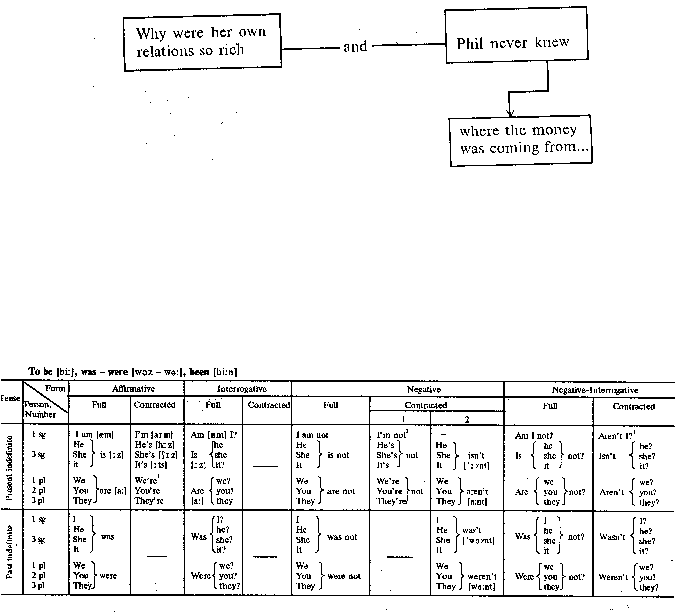
340
č. The compound-complex sentence
Why were her own relations so rich, and Phil never knew where the money was coming from for tomorrow’s
tobacco?
It is a compound-complex sentence consisting of two coordinated clauses connected by contrasting relations
and linked by the copulative conjunction and. Besides two coordinate clauses the sentence comprises one
subordinate clause which depends on the second coordinate clause. It is an object clause introduced by the
conjunctive adverb where.
SUPPLEMENT
Tense Auxiliaries
As the majority of the finite form of the verb are analytical they are formed by means of auxiliary verbs (auxiliaries).
These are: to do, to be, to have, shall, will.
In the spoken language some forms of the auxiliaries and the negation not are contracted which is shown in writing by
means of the apostrophe (‘)
Note:
In the spoken language is [?z] is usually weakened and is pronounced [z] after vowels and voiced consonants (except
voiced sibilants and affricates), [s] after voiceless consonants (except voiceless sibilants and affricates), [?z] after
sibilants and affricates (both voiced and voiceless). This weakening of the form is not usually shown in writing:
The boy is gone (?
?
'bo?z'gon].
The plan is good [?
?
'pl?nz'gud].
The cup is broken [?
?
'k?ps'brouk?n].

